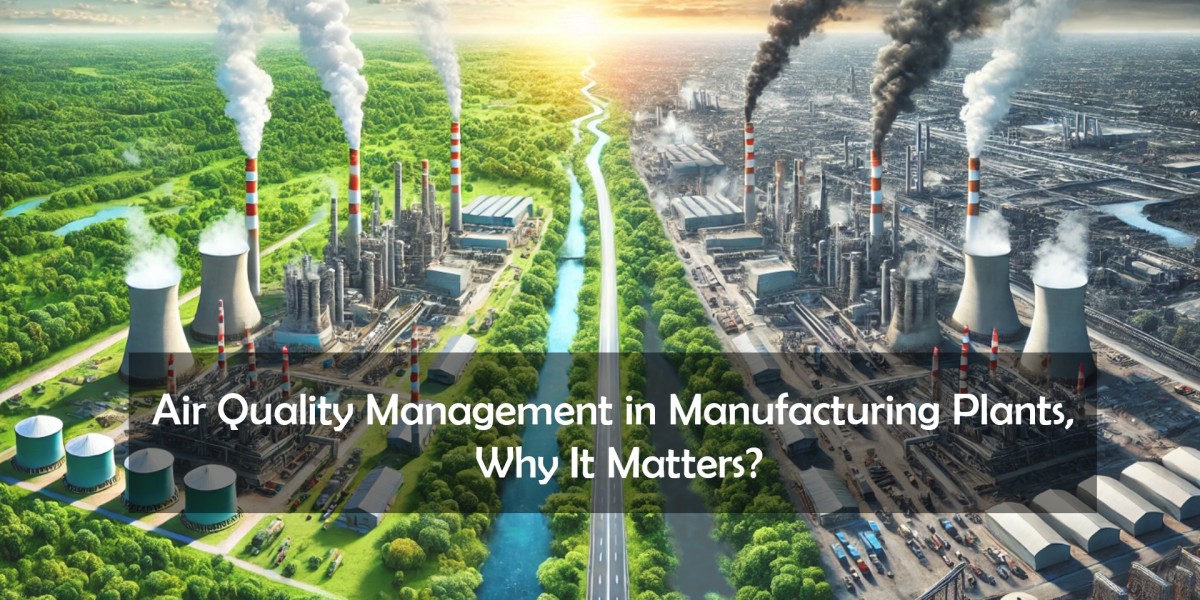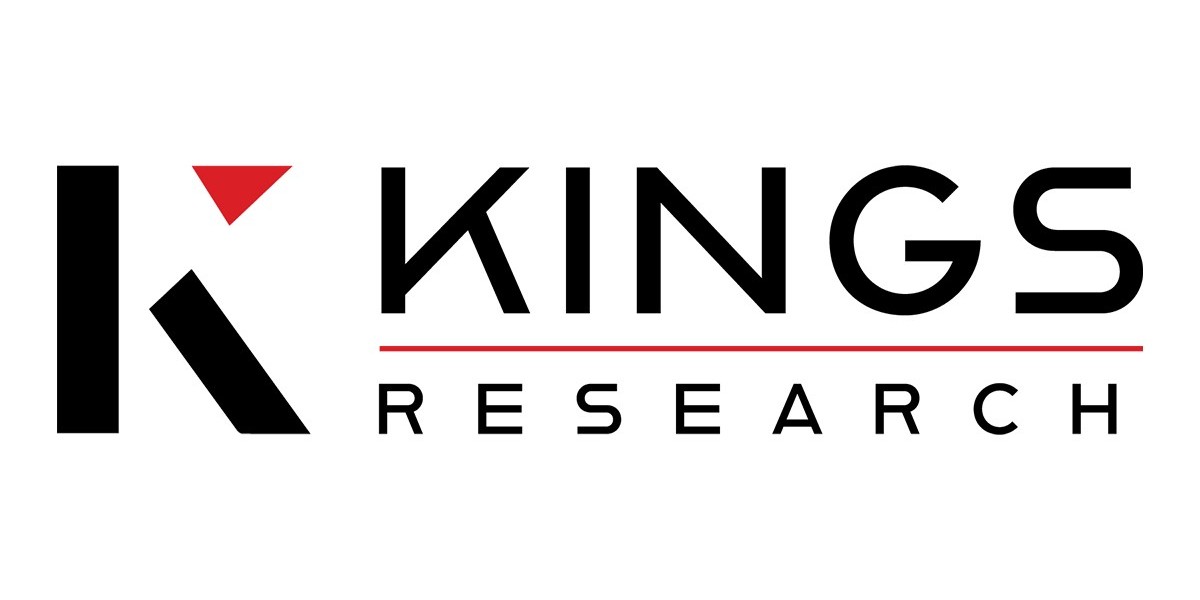Air quality in manufacturing plants is an essential factor that often goes unnoticed, but its impact on both workers and the environment is profound. While industrial plants are designed for efficiency and production, the airborne pollutants they generate can create significant health hazards and contribute to environmental degradation if not managed properly. As industries continue to grow, ensuring clean air in industrial environments is critical for worker safety, regulatory compliance, and environmental responsibility. This blog delves into the importance of air quality management in manufacturing plants and how industries can implement effective solutions.
The Importance of Air Quality in Industrial Settings
Air quality management in manufacturing plants involves monitoring and controlling airborne pollutants to maintain safe and breathable air. In sectors such as chemical manufacturing, textiles, metal production, and mining, the need for proper air quality control is particularly crucial due to the high levels of contaminants generated. Particulate matter, harmful gases, volatile organic compounds (VOCs), and chemical byproducts are commonly released during production processes.
Regulatory bodies like the Occupational Safety and Health Administration (OSHA) and the Environmental Protection Agency (EPA) of the respective country might have established stringent air quality standards to protect both workers and the environment. Failure to comply with these regulations can lead to severe penalties, health liabilities, and damage to the company’s reputation. Therefore, managing air quality is not only a matter of compliance but also a moral and ethical responsibility for companies.
Health Risks Associated with Poor Air Quality
Poor air quality in industrial environments poses significant health risks to workers who are exposed to pollutants on a daily basis. Dust, fumes, gases, and chemicals can trigger respiratory problems, allergies, and long-term diseases. Common pollutants like sulfur dioxide, ammonia, nitrogen oxides, and benzene are known to cause severe respiratory conditions and skin irritations. Over time, exposure to these pollutants can lead to chronic diseases such as chronic obstructive pulmonary disease (COPD), lung cancer, and asthma.
A 2021 study found that workers in industries with poor air quality have a 40% higher chance of developing respiratory diseases compared to those in cleaner environments. Additionally, acute symptoms such as headaches, dizziness, fatigue, and throat irritation are frequent among workers in polluted settings, often leading to reduced productivity and absenteeism. These health risks underline the importance of ensuring that workers have access to clean, breathable air throughout their shifts.
Environmental Consequences of Poor Air Quality
The environmental consequences of poor air quality in manufacturing plants extend far beyond the factory walls. Industrial emissions are a significant source of air pollution, contributing to smog, acid rain, and the release of greenhouse gases that exacerbate climate change. Many plants discharge high levels of particulate matter and hazardous gases that not only affect air quality but also harm the surrounding communities and ecosystems.
One notorious example is the role of sulfur dioxide and nitrogen oxides, which are key contributors to acid rain. These pollutants can travel long distances, affecting water bodies, forests, and agricultural lands far from the point of origin. Odour pollution affect the quality of life. Additionally, ozone-depleting substances emitted by certain industries can damage the ozone layer, leading to increased UV radiation and a higher risk of skin cancer and other health issues for humans.
With increasing global attention on environmental sustainability, manufacturing plants face growing pressure to reduce their emissions and adopt cleaner technologies. Failing to address air quality issues can result in public backlash, legal challenges, and financial penalties, making it a critical area of focus for modern industries.
Air Quality Management Strategies for Manufacturing Plants
To combat the challenges posed by poor air quality, manufacturing plants must adopt a comprehensive approach to air quality management. Below are some key strategies:
- Ventilation Systems: Proper ventilation is crucial in industrial environments to ensure a constant flow of fresh air while removing contaminants. Advanced systems can target specific areas of the plant, improving air circulation and reducing the concentration of airborne pollutants. This is particularly important in confined spaces where fumes and dust can accumulate.
- Dust and Particulate Control: Many manufacturing processes generate fine dust and particulate matter, which can be harmful when inhaled. Implementing dust collection systems such as baghouses, cyclones, and wet scrubbers can capture particulates before they enter the atmosphere. These systems help reduce exposure for workers and minimize the plant’s environmental impact.
- Emission Control Technologies: Industrial emissions can be reduced through the use of technologies like Biofilters, Biotrickling filters, Bioscrubbers, thermal oxidisers, catalytic converters, and chemical scrubbers, among many others. These devices break down harmful gases and chemicals, converting them into less toxic substances before they are released into the air. For example, scrubbers are widely used to remove sulfur dioxide from exhaust gases, thus reducing the plant’s contribution to acid rain.
- Air Quality Monitoring: Continuous monitoring of air quality is essential for early detection of pollution levels that exceed safety thresholds. Modern monitoring systems use sensors to measure the concentration of different pollutants in real time, allowing operators to take immediate action if levels become hazardous. These systems also help ensure compliance with regulatory standards.
Elixir Enviro Systems’ Innovations in Air Quality Management
Elixir Enviro Systems is at the forefront of providing innovative solutions to help manufacturing plants improve their air quality management. Here are some examples of our offerings:
- Advanced Ventilation Solutions: Our ventilation solutions are designed to meet the specific needs of each manufacturing environment. By incorporating intelligent airflow designs and energy-efficient technology, we ensure optimal air circulation while reducing operational costs.
- Effective Odour Control Technologies: We utilize cutting-edge technologies such as biofilters, biotrickling filters, and chemical scrubbers to capture and neutralize harmful pollutants before they are released into the environment. These innovations help industries significantly lower their emissions of sulfur dioxide, nitrogen oxides, and other hazardous compounds.
- Real-Time Air Quality Monitoring Systems:Through advanced sensor systems, we offer real-time air quality monitoring that provides actionable insights. Our systems detect and track particulate matter, volatile organic compounds (VOCs), and other pollutants, allowing businesses to take immediate action if safety thresholds are exceeded.
- Customized Dust Control Solutions: Elixir Enviro Systems deploys highly effective dust collection solutions like baghouses and cyclones, ensuring that even the smallest particulate matter is captured and contained. These systems not only enhance workplace safety but also contribute to a cleaner environment.
Our goal is to help businesses achieve cleaner, safer, and more sustainable operations. Partner with us at Elixir Enviro Systems to prioritize air quality and protect both your workforce and the environment.
Conclusion
Air quality management in manufacturing plants is a crucial aspect of ensuring worker safety, maintaining environmental standards, and achieving operational efficiency. As industries grow, so do their responsibilities to protect the health of their workforce and minimize their environmental impact. Implementing advanced air quality solutions not only addresses regulatory requirements but also serves as a long-term investment in the sustainability and success of the business.
For companies looking to remain competitive in a rapidly changing industrial landscape, air quality management is no longer optional — it is a critical part of the journey toward sustainable, responsible growth. Prioritizing clean air solutions today will lead to a healthier, more productive tomorrow.










